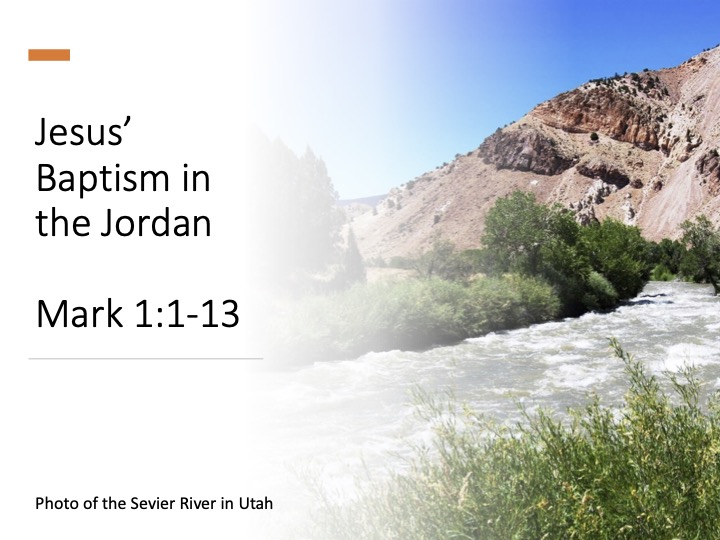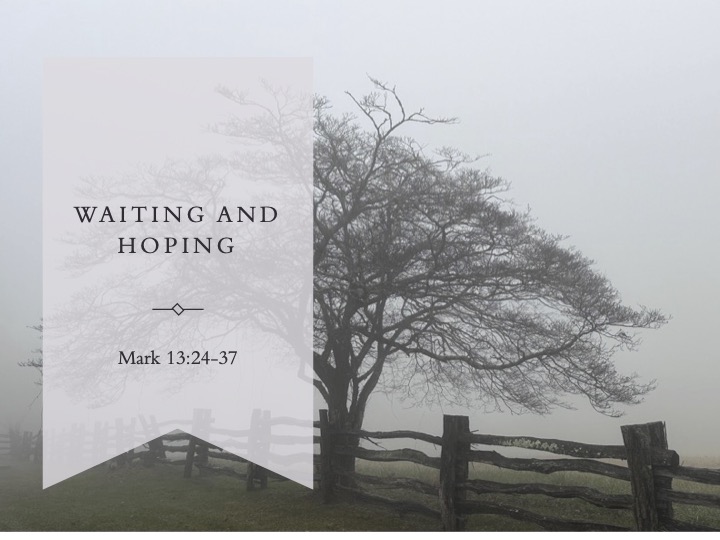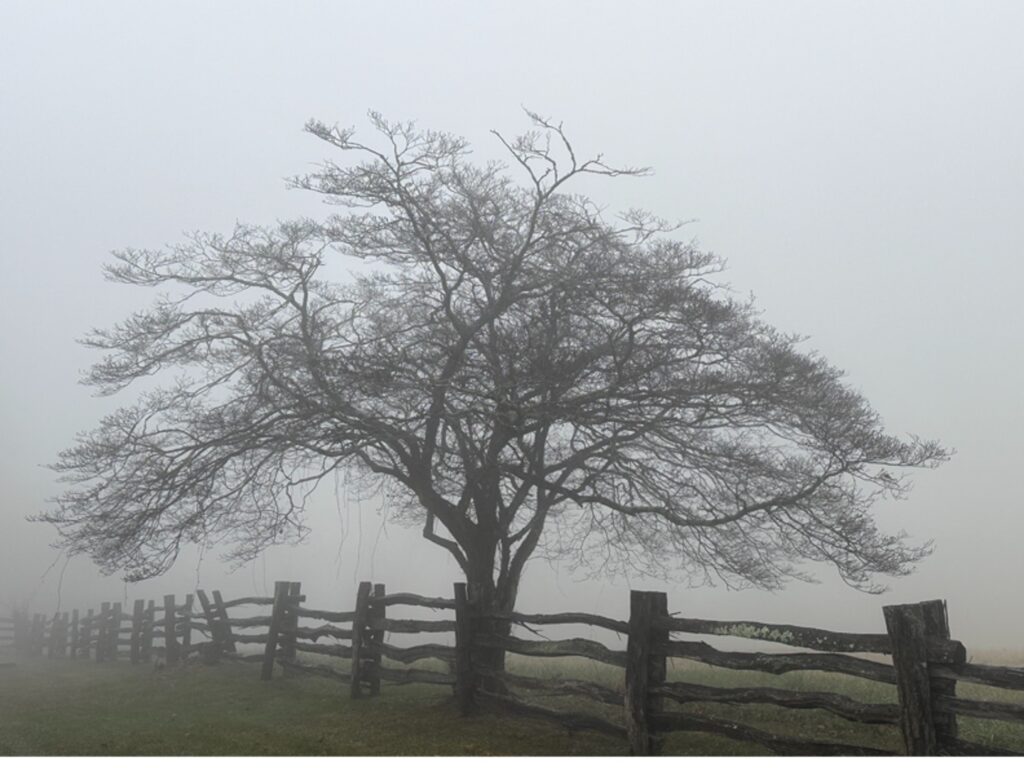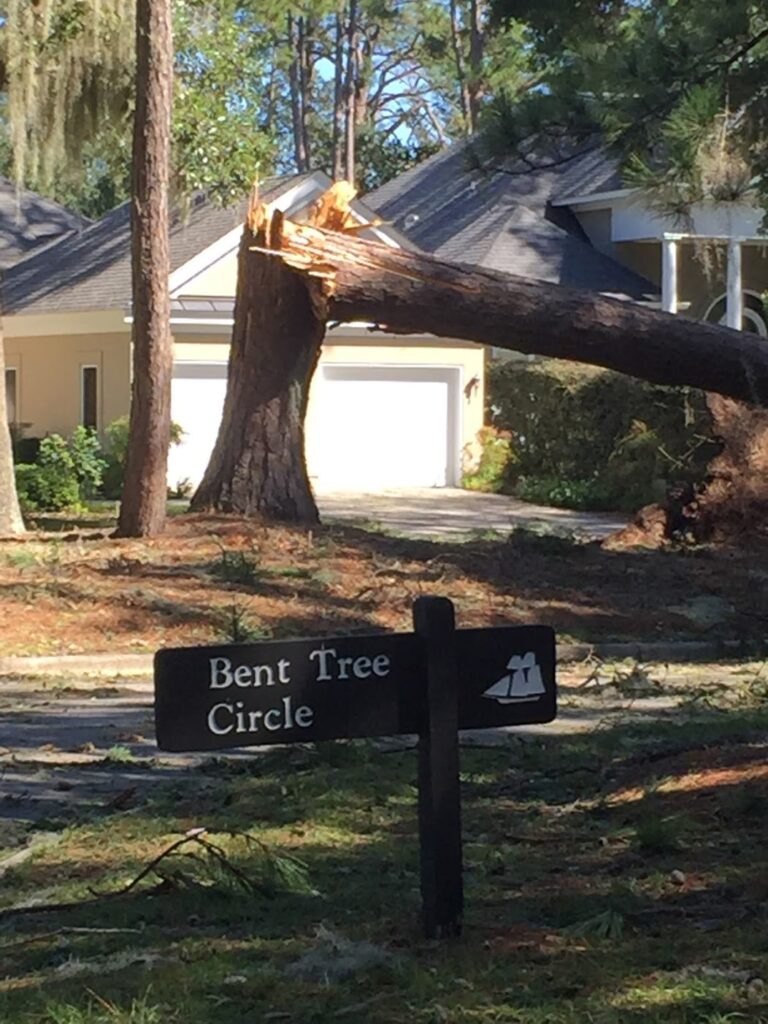Jeff Garrison
Mayberry & Bluemont Churches
January 21, 2024
Mark 1:21-28
At the Beginning of Worship
I finished Harrison Scott Key’s book, How to Stay Married last week. Harrison teaches at Savannah College of Arts and Design, and I have met him several times. His recent book is the only one of his I have that is not signed. Harrison is a funny writer, even when he writes about how his marriage almost ended. I quoted this in my Saturday musings yesterday and thought it fit for today’s message.
When I was growing up, my grandmother would often say, ‘I’m sweating like a whore in church.’ As a kid, I assumed this imaginary whore was sweating in church because she knew Jesus was watching her and scowling his disapproving scowl. But I now know. The whore is not sweating in church because of Jesus. She’s sweating because of all the Christians.[1]
The Jesus of scripture has compassion on us. We’ll see this in today’s passage as he frees a man possessed by an evil spirit. Interesting, the encounter happens in a synagogue, the church of the day.
We who strive to follow Jesus, need to also show compassion to others. Let’s make sure no one should be sweating in church (unless it’s a hot summer day and the air conditioning is out).
Before reading the Scripture
Mark cobbles together short vignettes of Jesus and places them back-to-back. The fast pace of Mark’s writing provides little time to contemplate what happens before we’re into a new story. It’s easy, almost, to ignore the miraculous nature of the episodes, as we’ll see today.[2] But when we pull all these stories together, we’re overwhelmed. Mark does this on purpose. Without saying, “Jesus is God” or a similar proclamation, these stories help us understand that Jesus’ uniqueness. He’s truly God’s Son, the one welding the power to save the world. Today, and in the weeks ahead, we’ll see this at work.
Another interesting thing about Mark is how he refers to Jesus’ teachings but says less about what Jesus taught than the other gospels.[3] Jesus teaches, people are amazed with his teaching, but we are not privy to what he taught. Instead, as we’ll see today, Mark provides us with a surprise reaction to Jesus’ teachings. This reaction comes from the demonic world.
Read Mark 1:21-28
When I was a child, whenever we were away from home on Sunday, my parents found a church for us to attend. Sometimes it was just for Sunday School, but at least for part of Sunday morning, we were in church. Mostly these were Presbyterian Churches, but on occasion it was a Methodist or Baptist Church.
When we were in my family’s home territory in Moore County, North Carolina, we always attended Culdee Presbyterian Church in Eastwood. First, we would attend Sunday School, often taught by one of my father’s parents, followed by worship. It seemed we always sang “Holy, Holy, Holy,” a song I later heard a Church of God pastor label as the “Presbyterian National Anthem.”[4] That was, by-the-way, meant as a compliment. I still can recall my grandfather singing that song boldly even though I think I inherited his lack of a musical voice.
I remember us having some reason to be in Moore County on a Sunday afternoon, so we’d break the three hour drive up by attending church in either Riegelwood or Elizabethtown. And if we were vacationing in other places, we’d attend church there. I remember going to church in St. Louis and around Washington DC. We’d attended church because it was expected.
Church was where we were to be on Sunday. As the boy Jesus said to his parents when he was lost in Luke’s gospel, “where else should I be but in my father’s house.”[5] So we went to church.
Of course, there was another reason. Attending church, in those days, was a bit like being a Rotarian and having to “make up” meetings you missed. If we attended another church, we still received credit toward earning our perfect attendance pins. Do you remember them? But whatever the reason, whether for a perfect attendance award or because it was the right thing to do, it was good to be in our heavenly father’s house on the Christian Sabbath.
Likewise, for Jesus, a Jew, when the Sabbath rolled around, he wanted to be in the synagogue. We see this in today’s reading, where Jesus and the disciples who’d just signed up to follow him, are in Capernaum, the first disciples’ hometown.
There is some evidence that after Jesus left Nazareth, he made his home in Capernaum, the “village of Nahum,” as the name translates. It was a city on the north shore of Galilee and prosperous in the first century. Supposedly, there was an eight-foot seawall that ran for nearly a half mile along the sea, with piers that jutted out into the water. Fishing was a main industry, and the fish were not just consumed locally, but dried and shipped to other towns. In the countryside, there were fertile farms. And the city, lying next to major roads, served as a center of trade.[6]
Today, there are ruins of a magnificent ancient synagogue in Capernaum built of imported white limestone. But that was constructed in the 4th Century. In Jesus’ time, there was an older synagogue, the foundation of which is underneath this more magnificent one. That synagogue was constructed out of the black basalt, a rock common to the area. That older synagogue was possibility where Jesus visited in our story today.[7]
A synagogue is essentially a meeting place for the Jews. There were no sacrifices or anything like that. Instead, the faithful gathered and the Torah was taught, often by lay people like Jesus.
On this day, Jesus must have been on fire. His teaching amazes everyone. Again, we don’t know what he taught, but he caught the attention of those gathered. So amazed, they bragged about how his teaching had authority. Again, as we’ve seen, Mark’s use of the Greek is informative here. The word for authority used here, in other writings of the time, convey a supernatural power. It’s as if his teaching comes from God.
When the crowd says Jesus teaches not like the scribes, they’re not saying anything bad about the scribes. Instead, they imply a freshness of Jesus’ message. The scribes’ message came from the traditions of the Hebrew Bible, but Jesus’ message comes direct from the Father.[8]
Instead of learning what Jesus taught, we see the reaction to the message. While everyone is amazed, a demon or unclean spirit, who inhabited a man present at the gather, goes berserk. It cries out, “What have you to do with us, Jesus of Nazareth. Here, the demon calls Jesus’ earthly identification. It knows his name and from where he came. By naming him, the unclean spirit attempts to overpower Jesus, because the ability to name was considered powerful in the ancient world.[9] But it doesn’t work.
The demon essentially implies that Jesus is trespassing on his turf. A cosmic battle exists between the unclean, the demonic, and the powers of heaven. And now, as a part of this battle, a skirmish occurs in Capernaum. And here, Jesus shows us the world still belongs to God. Jesus isn’t trespassing. The ones trespassing are Satan’s minions.
The demon knows it’s in trouble for it encounters the “Holy One of God.” Interestingly, long before Peter proclaims Jesus to be the Messiah,[10] this unclean spirit identifies Jesus’ divine role. Knowing Jesus identity is not the same as believing in or following him, as we see in this encounter. As James teaches, “even the demons believe and tremble.”[11]
Jesus then rebukes the unclean spirit. Notice, however, Jesus doesn’t rebuke the man with the unclean spirit! By rebuking the unclean spirit, Jesus shows compassion to the man inhabited by the demon. With convulsions and crying, it leaves the man. Here, at the first instant of Jesus’ public ministry in Mark, we witness his power, the power that can only come from God and will reclaim the earth for God’s good purposes. Jesus’ power is greater than that of the evil in the world.
And, as we can imagine, word gets around about Jesus. The event in Capernaum helps bolster Jesus’ fame. We’ll see how Jesus’ actions in the first chapter of Mark becomes like an avalanche, growing and gaining power as he moves from one place to the next. By the end of the first chapter, we learn Jesus can’t escape the crowds.[12]
This story, at the beginning of Mark’s gospel, sets the stage for what will happen in the first half of Mark’s story. Chapters 1 through 8 show Jesus moving around the countryside. Through his teaching and healing, his power over evil and the weather, demonstrate how the kingdom has come near.
What might we take from this passage that will help us live as a follower of Jesus? We’re reminded of Jesus’ power, in which we’re to trust. That which is evil has no power over our God. We don’t have to fear such evil. Instead, let’s give thanks to God in whom we find hope. We trust God. When overwhelmed by dark forces, we call upon God. Amen.
[1] Harrison Scott Key, How to Stay Married: The Most Insane Love Story Ever Told (New York: Avid Reader Press, 2023), 284.
[2] Mary Ann Tolbert, Sowing the Gospel: Mark’s World in Literary-Historical Perspective (1989, Minneapolis, MN: Fortress Press, 1996), 135.
[3] Morna D. Hooker, The Gospel According to Saint Mark (1991, Hendrickson Publishing, 1997), 61.
[4] I heard this from the pastor of a large Church of God at a Ben Johnson’s evangelism seminars at Columbia Theological Seminary in 1992.
[5] Luke 2:46-50
[6] James R. Edwards, The Gospel According to Mark (Grand Rapids, MI: Eerdmans, 2002), 52-53.
[7] Edwards, 53.
[8] Edwards 55 (see also 53-54).
[9] Douglas R. A. Hare, Westminster Bible Companion: Mark (Louisville: Westminster/John Knox Press, 1996), 28.
[10] Mark 8:27ff.
[11] James 2:19.
[12] Mark 1:45.









